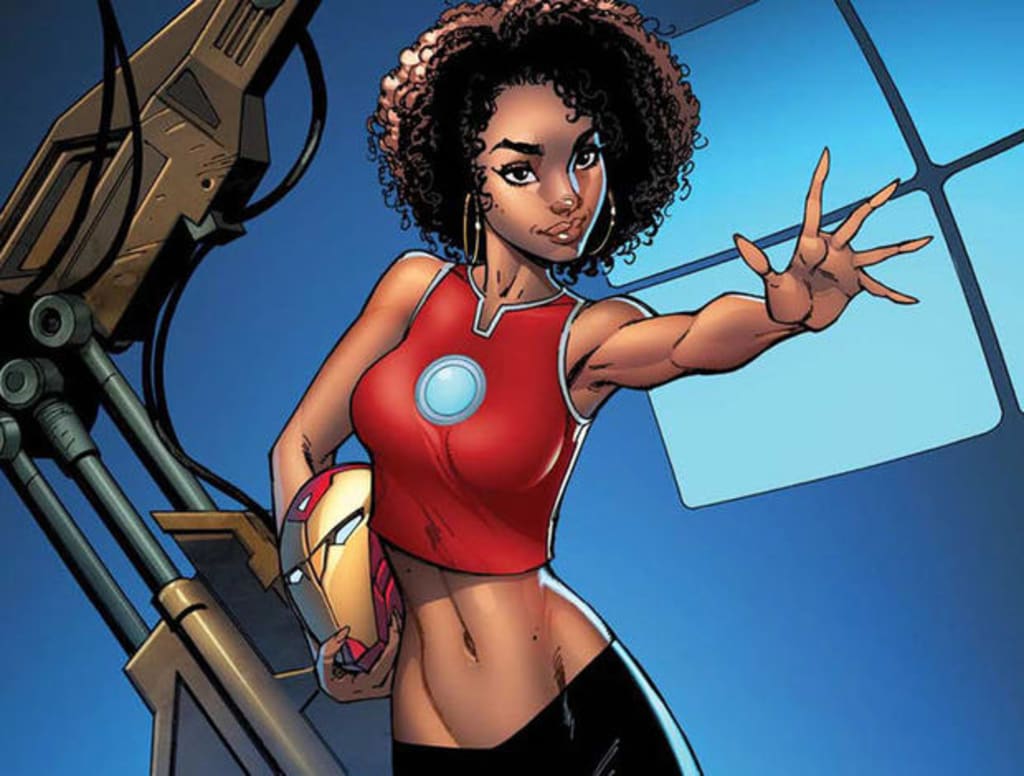
Comic book art is notorious for its controversial depictions of women. The traditional female superhero is a slick, sexy woman with the kind of curves that make men drool. She's usually clad in a tight, form-fitting bodysuit — or a leather catsuit — that just enhances her sex appeal. Oh, and those are the modest ones. Culture is gradually moving on, though, with fans coming to expect better from their comics; while that's definitely a step forward, it does mean that companies like Marvel and DC sometimes inadvertently wade into controversy. That happened to Marvel this week, with their newest superhero, Riri Williams!
Who Is Riri Williams?
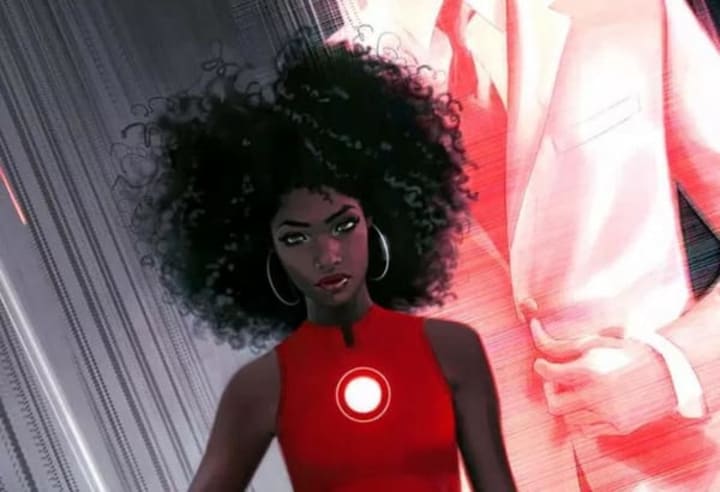
The latest of Marvel's so-called 'Legacy Heroes', Riri Williams is a fifteen-year-old girl who's about to inherit the mantle of Iron Man. She's a teen genius who successfully reverse-engineered the Iron Man armor, and the fallout from the latest Marvel event ("Civil War II") will see her take over from ol' Shellhead. In actual fact, Riri is one of two new 'Iron Men' - the other being none other than Doctor Doom himself!
Legacy Heroes are always a subject of controversy; many traditional fans resent them, feeling that the characters they grew up with are being replaced by new, diverse reinterpretations of the iconic designs. That said, it's pretty clear that Legacy Heroes are selling well, and are introducing a new generation to superhero comics. We can expect the trend of Legacy Heroes to continue for a long while, and Marvel even recently teamed a bunch of them up in their new flagship book, The Champions.
Marvel put in real work to make sure Riri's design was sound. The character's design was based on a real teenager — Skai Jackson, of Disney Channel fame!
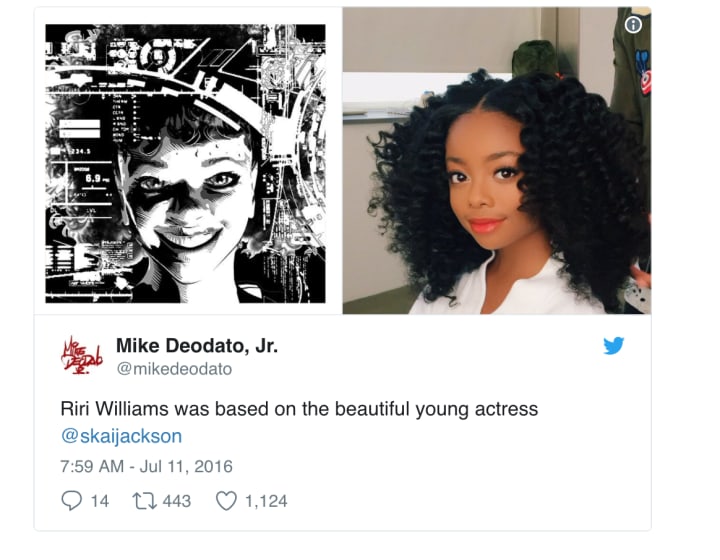
Jackson, for her part, was absolutely blown away.
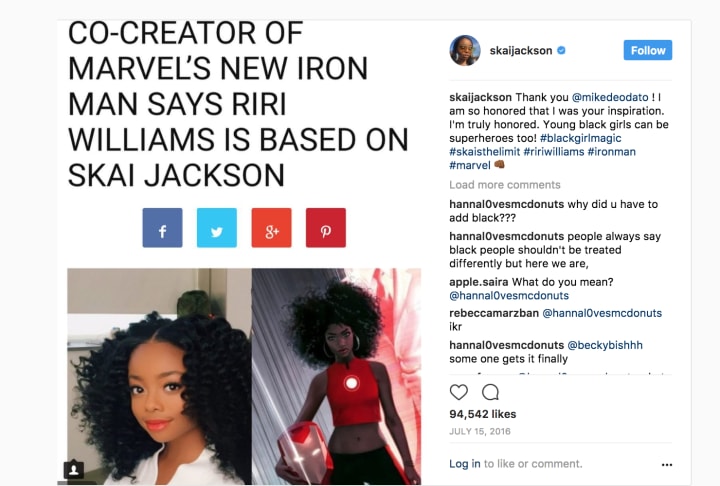
Enter J. Scott Campbell
With Invincible Iron Man #1 due out next month, Marvel commissioned a range of variant covers in honor of the occasion. One of these was for Midtown Comics, and was sketched by J. Scott Campbell. It wasn't well-received by fans.
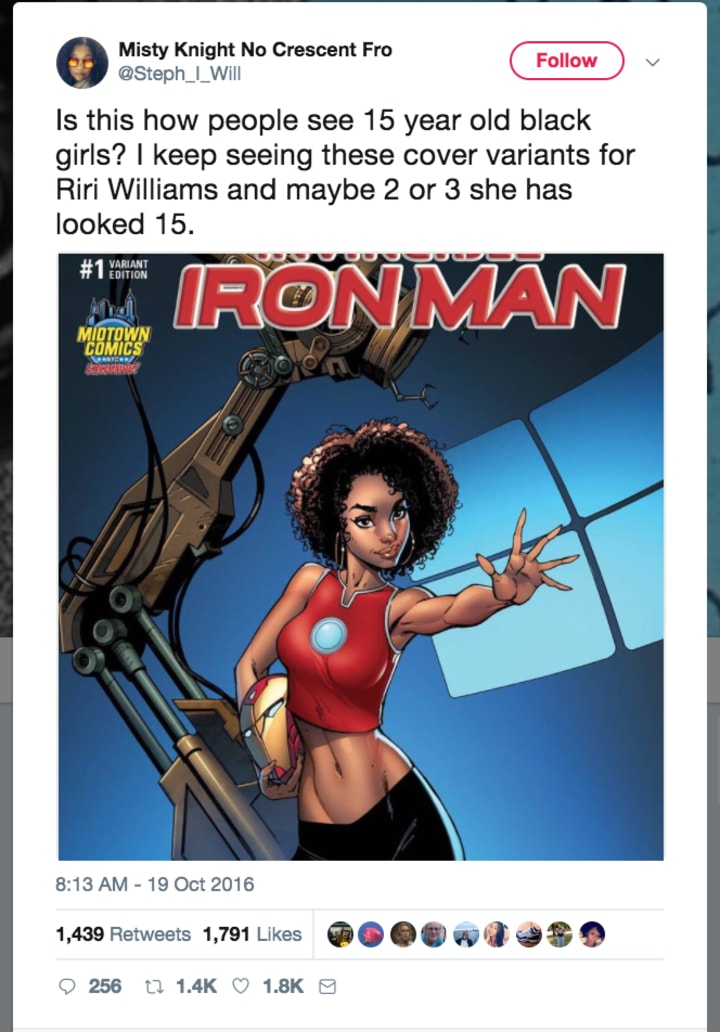
The standard cover is $3.99. For J. Scott Campbell's image of Riri in the same pose wearing her Iron Man armor, you pay $10.00. For the crop-top? $15.00. The pricing alone is cringeworthy, suggesting that you're paying an extra five bucks to take off the armor and get better definition of Riri's body. Although Campbell has honored the original design — Riri was wearing the crop-top in the first image that went public — he's undeniably sexualized it. The crop-top is tightened, she's stood in an anatomically impossible pose, and the highlighting on the pants even forms an arrow cutting down towards her groin. Worse still, the colorist has actually lightened Riri's skin-tone!
Needless to say, the Internet went wild with frustration, not least because Campbell's art could easily be checked against the real 14-year-old who inspired Riri's look.
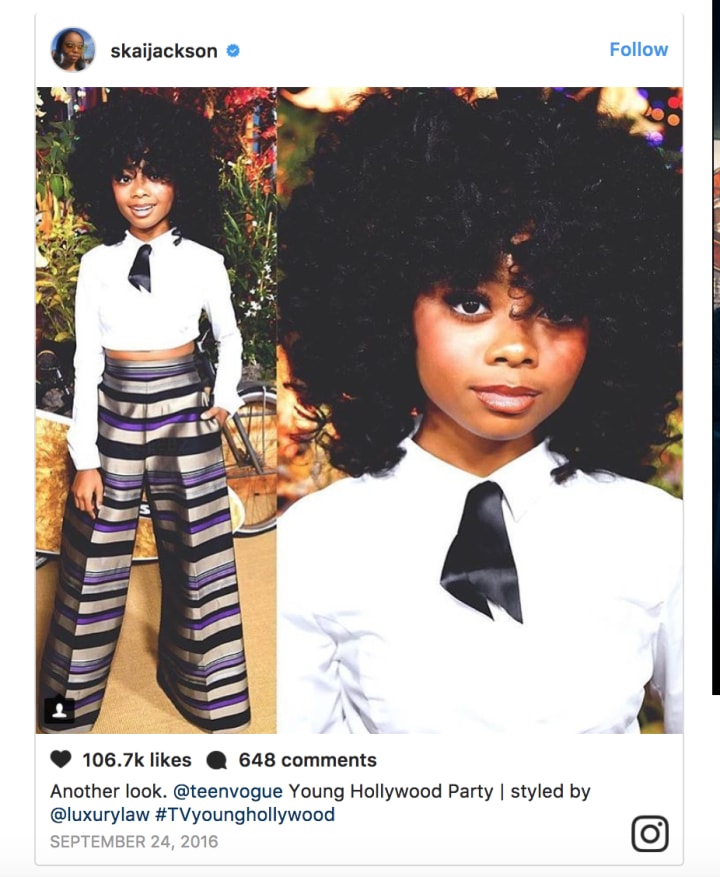
J. Scott Campbell has had a tough week. He's defended himself as following the original design, and argued that he "simply attempted to draw a young, sassy coming of age young woman". In his view, this whole thing is a storm in a teacup, a "non-controversy" that robs his job of its joy. In spite of his defence, Marvel and Midtown have jointly agreed to pull the variant.
This Isn't J. Scott Campbell's Fault.
I have to be honest that I don't think J. Scott Campbell should get the blame for this. Marvel approached an artist with a reputation for 'cheesecake', a style of comic book art where women pose in sexually appealing positions. The term has slipped into comics from the photography industry; in 1912, New York photographer James Kane was photographing an attractive woman when a breeze blew her skirt up. Thrilled at the sight of more than the usual leg, Kane declared:
"Wow! This is better than cheesecake!"
Let's be frank; Marvel approached an artist known for his cheesecake style, and asked him to draw a 15-year-old girl. What did they expect?
This whole controversy is eerily reminiscent of another variant cover problem Marvel suffered in 2014, when they asked Milo Manara to do a variant for Spider-Woman #1. A talented Italian artist, Milo Manara has a history of doing pinup-style variants for Marvel, and was the main artist on an X-Women book. His reputation, though, is for highly sexualized images — it's no coincidence he has a background in erotic comics. Ultimately, that variant too caused Internet outrage.
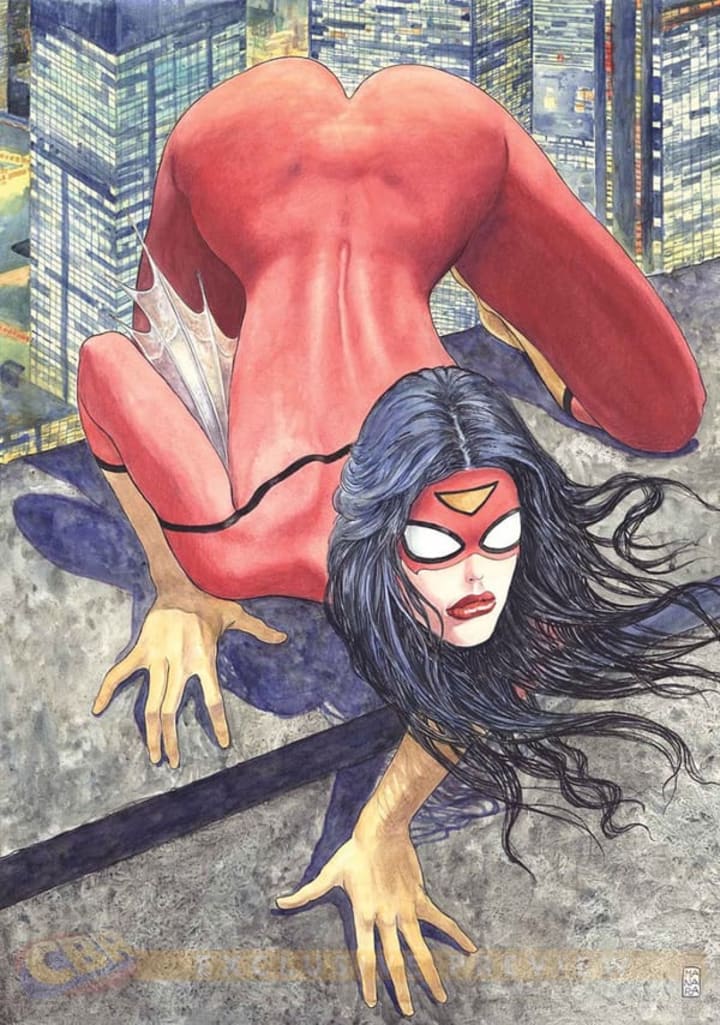
The Milo Manara variant. Image: Marvel Comics
But — just as with J. Scott Campbell — Milo Manara was simply producing the kind of art he's well known for. In both cases, the issue actually lay with Marvel. In Manara's case, Marvel hired an artist known for his sexualized renditions of women, and were surprised at the backlash. In Campbell's case, Marvel hired an artist known for his "cheesecake" art, and were surprised that his image of a 15-year-old teenage girl caused problems.
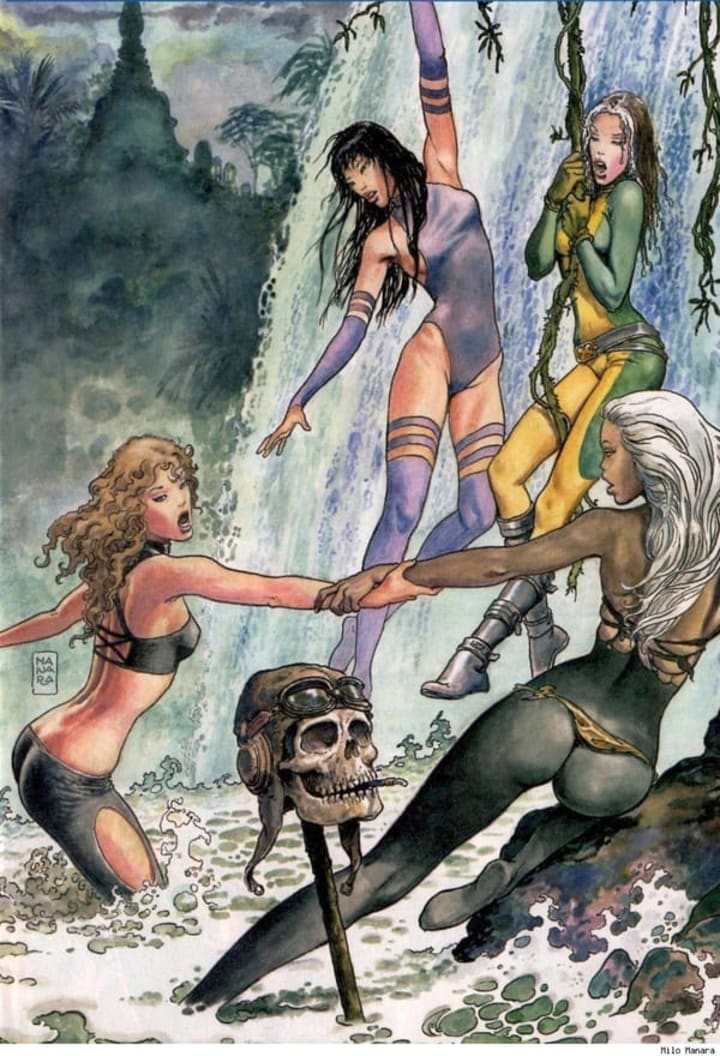
Another example of Milo Manara's work. Image: Marvel Comics
There are two fundamental differences here, though. First of all, the character of Riri Williams is a 15-year-old girl. For better or worse, there's still very much a market for sexy superheroines among comic book fans. But in the case of Riri Williams, fans aren't being encouraged to look an attractive adult superheroine; they're being encouraged to look admiringly at the sexiness of an underage girl.
Worse still, as good as Spider-Woman #1 was back in 2014 (and the current ongoing is just as good), it didn't have half the level of attention Invincible Iron Man has. Riri Williams is an important character; when Marvel announced her creation, newspapers articles and news channels discussed her in depth and interviewed the creative team. The world's attention is on this book, and Marvel can't afford foolish mistakes.
This was an avoidable error. J. Scott Campbell is a great artist, but he simply wasn't the right choice for this project — his cheesecake style is inappropriate for this project. Back during the Milo Manara controversy, Marvel's Senior Vice President of Publishing, Tom Brevoort, wrote:
"I think a conversation about how women are depicted in comics is relevant at this point, and definitely seems to be bubbling up from the zeitgeist."
Two years on, the sad truth is that Marvel don't yet seem to have had that conversation, and the result has been an even more high-profile controversy. It's time for Marvel to start thinking a lot more about how female characters are depicted, so this kind of issue doesn't come up again.
About the Creator
Tom Bacon
A prolific writer and film fan, Tom has a deep love of the superhero genre.


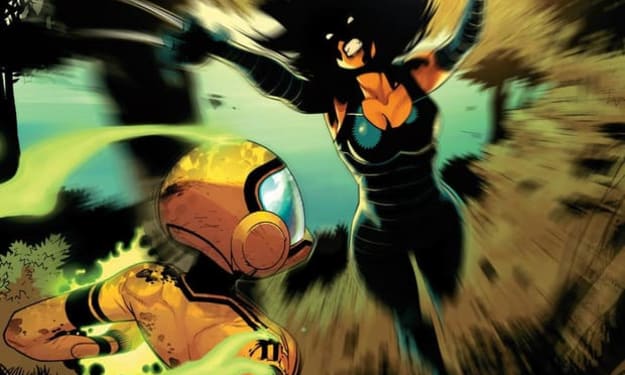

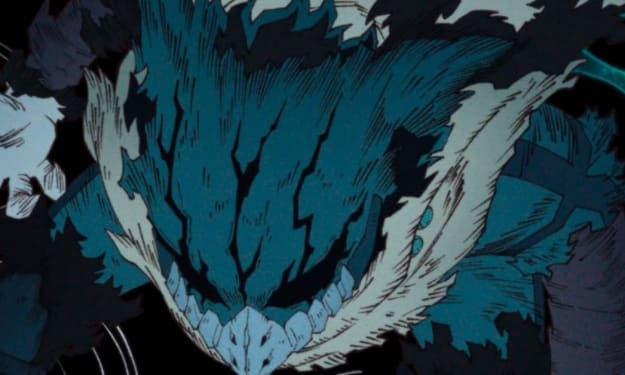

Comments
There are no comments for this story
Be the first to respond and start the conversation.